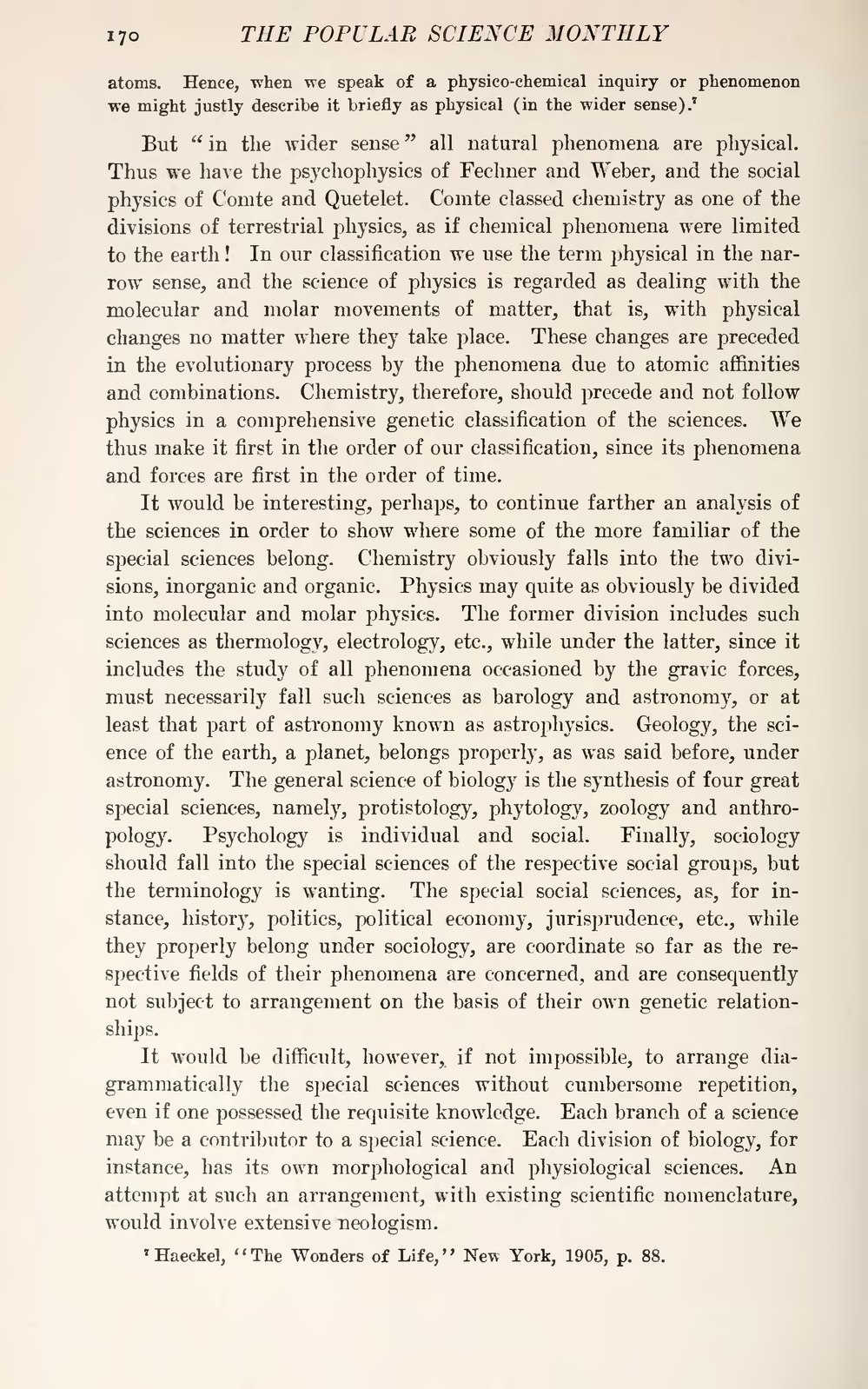But "in the wider sense" all natural phenomena are physical. Thus we have the psychophysics of Fechner and Weber, and the social physics of Comte and Quetelet. Comte classed chemistry as one of the divisions of terrestrial physics, as if chemical phenomena were limited to the earth! In our classification we use the term physical in the narrow sense, and the science of physics is regarded as dealing with the molecular and molar movements of matter, that is, with physical changes no matter where they take place. These changes are preceded in the evolutionary process by the phenomena due to atomic affinities and combinations. Chemistry, therefore, should precede and not follow physics in a comprehensive genetic classification of the sciences. We thus make it first in the order of our classification, since its phenomena and forces are first in the order of time.
It would be interesting, perhaps, to continue farther an analysis of the sciences in order to show where some of the more familiar of the special sciences belong. Chemistry obviously falls into the two divisions, inorganic and organic. Physics may quite as obviously be divided into molecular and molar physics. The former division includes such sciences as thermology, electrology, etc., while under the latter, since it includes the study of all phenomena occasioned by the gravic forces, must necessarily fall such sciences as barology and astronomy, or at least that part of astronomy known as astrophysics. Geology, the science of the earth, a planet, belongs properly, as was said before, under astronomy. The general science of biology is the synthesis of four great special sciences, namely, protistology, phytology, zoology and anthropology. Psychology is individual and social. Finally, sociology should fall into the special sciences of the respective social groups, but the terminology is wanting. The special social sciences, as, for instance, history, politics, political economy, jurisprudence, etc., while they properly belong under sociology, are coordinate so far as the respective fields of their phenomena are concerned, and are consequently not subject to arrangement on the basis of their own genetic relationships.
It would be difficult, however, if not impossible, to arrange diagrammatically the special sciences without cumbersome repetition, even if one possessed the requisite knowledge. Each branch of a science may be a contributor to a special science. Each division of biology, for instance, has its own morphological and physiological sciences. An attempt at such an arrangement, with existing scientific nomenclature, would involve extensive neologism.
- ↑ Haeckel, "The Wonders of Life," New York, 1905, p. 88.
